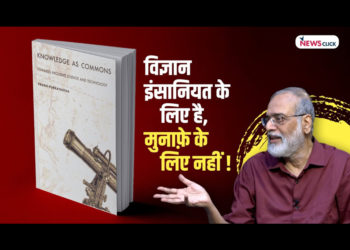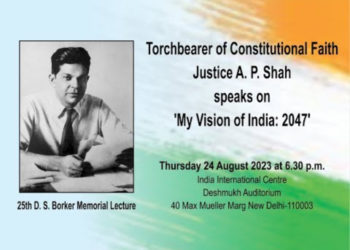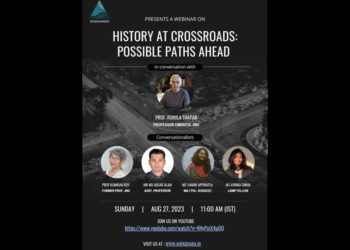Democracy Dialogues is an attempt by the New Socialist Initiative to initiate as well as join in the on-going conversation around democracy as a theme in academic as well as activist circles. In the recent times the very idea of democracy which has taken deep roots across the world, has come under scanner for various reasons. At the same time we have been witness to the ascendance of right-wing forces and fascistic demagogues via the same democratic route. There is this apparently anomalous situation in which the spread and deepening of democracy have often led to generating mass support for these reactionary and fascistic forces.
In this talk, Prof. Aditya Mukherjee looks at how Jawaharlal Nehru tried to implement the vision of our national liberation struggle, which was reflected in our Constitution. Critical elements of this vision were the creation of a sovereign, secular, inclusive, democratic and pro-poor state. There was a consensus among the entire Nationalist spectrum, from the Left to the Right on all these elements. While there was a consensus on the “pro-poor” aspect, from the early nationalists to Gandhiji to socialists and communists, there was no consensus on the idea of socialism, though a large and growing section was moving towards that objective. (The communalists and other loyalists who claimed to represent sectional interests, naturally did not share any aspect of this vision).
He outlines how Nehru undertook the stupendous and in many respects historically unique task of creating a modern democratic nation state in a plural society, left deeply divided through the active collusion of the colonial state; of promoting modern industrialisation within the parameters of democracy and sovereignty in a backward and colonially structured economy; of finding the balance between growth and equity in an impoverished, famine-ridden country; of empowering the people and yet expecting them to tighten their belt for the sake of the nation as a whole; of promoting the highest level of scientific education, a field left barren by colonialism; in short, of un-structuring colonialism and bringing in rapid economic development but doing it consensually, without the use of force, keeping what has been called the “Nehruvian consensus” intact in the critical formative years of the nation. Discussing Nehru, who was deeply influenced by Marxism, tried to creatively move towards the socialist objective without compromising on the non-negotiable principle of democracy; though with limited success because of a variety of reasons, he ends with reminding us that, in these days of trying to erase Nehru’s memory altogether or to remember him in an unrecognisable demonised image created though false propaganda, much can be learnt from the legacy left behind by Nehru’s ideas and practice by those who wish to struggle to meet the current challenges to all the pillars of the Idea of India.




